April 30, 2024 | 07:17 GMT +7
April 30, 2024 | 07:17 GMT +7
Hotline: 0913.378.918
April 30, 2024 | 07:17 GMT +7
Hotline: 0913.378.918
Vietnam has seen an impressive growth in exports of wood and timber products with turnover of US$2.95 billion as of March 15, up 39.8 per cent year-on-year. However, more work needs to be done for the domestic wood industry to affirm its transparency of timber origin in the international market.
According to the Vietnam Administration of Forestry (VAF) under the Ministry of Agriculture and Rural Development (MARD), over the past time, the Government together with MARD, the Ministry of Industry and Trade (MoIT) and the Ministry of Foreign Affairs have carried out many measures to respond to the United States’ accusation of Vietnam’s timber origin.
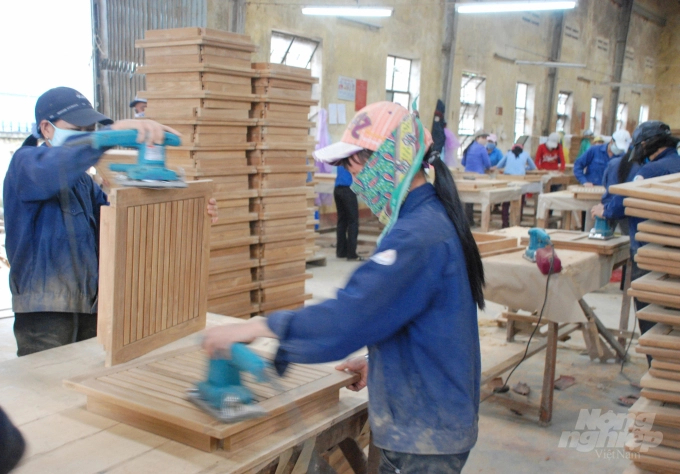
Vietnam's wood industry is being accused of using illegal timber origin from the United States. Photo: Vu Dinh Thung
The US is the destination of half of Vietnam’s wood and wood product exports.
On October 2, 2020, the US Trade Representative (USTR) initiated an investigation under Section 301 of the 1974 Trade Act on Vietnam’s illegal use of timber in wood products exported to the US.
USTR alleged that Vietnam imported illegal timber harvested from Cambodia's protected areas; illegal wood imported from Cameroon and the Democratic Republic of the Congo; implicitly maintained the illegal cross-border trade of timber and did not strictly enforce the laws on importing and processing wood.
According to Do Xuan Lap, Chairman of the Vietnam Timber and Forest Products Association (VIFOREST), in response to the US allegation, the association asked MARD and MoIT to urgently communicate with Cameroon’s Ministry of Forestry and Wildlife to sign an agreement or Memorandum of Understanding on strengthening coordination of timber import and export controls to ensure legal timber trade between the two countries.
At the same time, the Vietnamese authorities have contacted with relevant Cambodian authorities to come up with effective solutions to prevent illegal cross-border trade in timber, especially asking Cambodia’s side to make transparent the export licensing procedures for logs and sawn timber.
In addition, Vietnam’s authorities have issued a notice on the transparency of procedures for import and export of rare, precious and endangered species of wood in accordance with CITES regulations.
There is also a public procurement policy for the domestic wood market which encourages the change of use of wood materials from natural forests to plantation timber, ensuring forest management and sustainable industrial development.
However, another challenge facing the Vietnamese wood industry is the US-China trade conflict which makes Vietnam to become a relocation of Chinese wood enterprises, facing the risk of trade fraud allegations.
Bui Chinh Nghia, Deputy Director of the Vietnam Administration of Forestry, said since February 2020, the United States initiated an investigation on plywood of Chinese enterprises exported from Vietnam to evade anti-dumping tax and production subsidies.
In March 2021, the US Department of Commerce asked more than 60 Vietnamese plywood enterprises to response to many questions related to plywood export to this country. Enterprises producing kitchen cabinets, bathroom cabinets and a variety of interior and exterior furniture in Vietnam may also face the risk of “coming into sight” of the US authority as with plywood.
In this context, VIFOREST has asked relevant authorities and localities to strengthen the control of timber imports of FDI enterprises to avoid trade fraud. At the same time, the authority should review FDI investment in the wood industry, not licensing new foreign investment in the products that are facing the risk of being imposed heavy taxes in the US market.
According to VIFOREIST’s chairman Do Xuan Lap, every year, Vietnam imports about 1.3-1.5 million m3 of raw wood from the risky source of tropical wood. Some high-risk import sources include Cambodia and African countries.
Although imported tropical timber is not used to produce export products but this is the reason for allegations of illegal use of timber, damaging Vietnam’s reputation.
“The Vietnam Timber and Forest Products Association is cooperating with the timber associations of African countries to organize a workshop in mid-April to present a set of standards on the legality of imported timber to submit to the Vietnam Administration of Forestry and the General Department of Customs, wishing to prove to the United States that timber imported to Vietnam is legal.” Lap said.
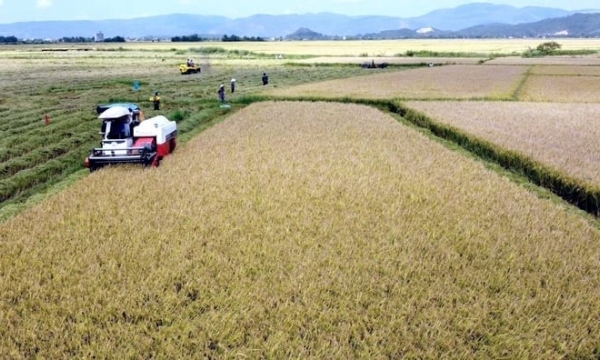
(VAN) Phu Yen is one of the localities with the conditions to develop high-tech agriculture, seafood processing and aquaculture.
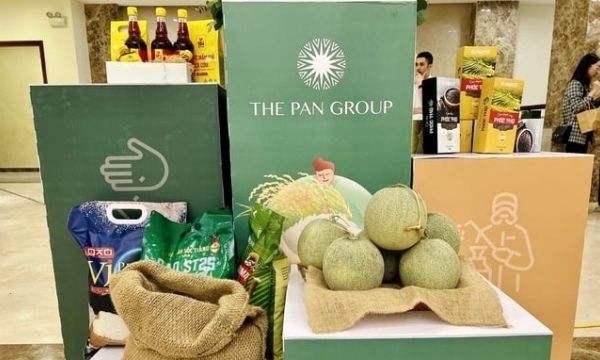
(VAN) In response to climate change concerns and economic challenges, PAN Group sets target of 12% revenue growth with natural agriculture solutions.
/2024/04/26/4910-3-173953_784.jpg)
(VAN) The Nestlé Net Zero Roadmap launched in 2020 has helped the Group transform its business operations and implement measures to reduce greenhouse gas emissions in all fields.
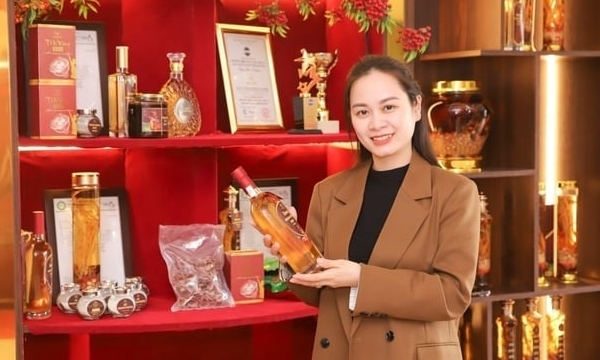
(VAN) Deer antler velvet is known as one of the 'Four Great Traditional Medicines'; however, the value-added aspect from the deep processing of deer velvet is currently overlooked.

(VAN) The three main factors causing the lack of sustainability in the growth of e-commerce in Vietnam are digital divide, digital workforce, and environment
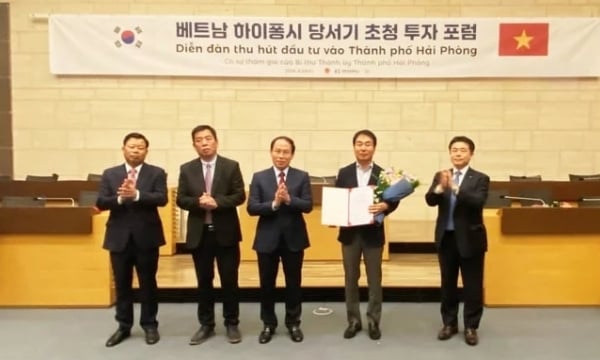
(VAN) South Korean enterprises have increased their investment capital in the city of Hai Phong by nearly VND 400 million following a series of meetings.
/2024/04/25/4132-3-083738_65.jpg)
(VAN) On the sandy area of Ly Trach commune, the model of growing Taiwan custard apples in a 'nature-based' direction has brought high economic efficiency.